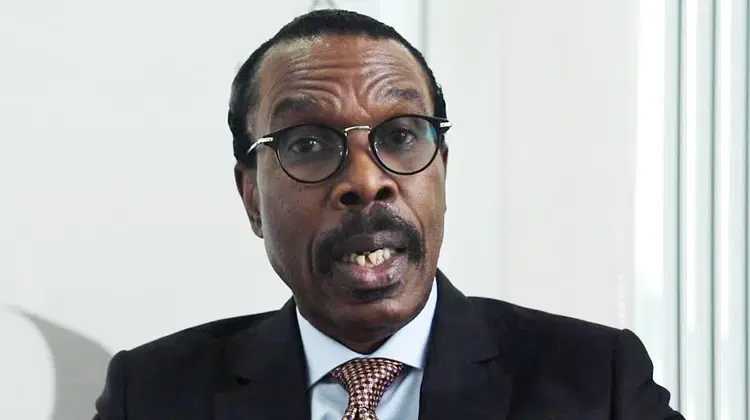The Economic Community of West African States has finalized a $75 million framework for its Renewable Energy and Energy Efficiency Facility, aiming to boost sustainable energy across the region.
Additionally, the bloc has emphasized the need for improved storage, milling, and mechanization in paddy production, projecting a $19 billion investment requirement to achieve these goals.
This was disclosed by the President, ECOWAS Commission, Dr. Alieu Omar Touray, on Thursday at the opening of the 93rd Ordinary Session of the ECOWAS Council of Ministers being held in Abuja.
Touray commended the progress of the Nigeria-Morocco gas pipeline project, a key initiative within ECOWAS’s broader regional integration efforts.
The 6,800 km pipeline is part of a series of integrated projects aimed at enhancing regional connectivity. Other notable initiatives include regulations on roaming, direct flight connections, and improvements in water infrastructure, all aimed at strengthening cooperation and fostering development within the region.
He said, “A Framework Document for the Establishment of an ECOWAS Renewable Energy and Energy Efficiency Facility has been finalised by the ministers.
“This is a new blended finance facility with an initial amount of USD75 million, whose objective is to provide grants, loans and guarantees through regular demand-driven competitive calls for proposals providing clean energy solutions for the ECOWAS region.
“Towards regional self-sufficiency in rice production, the “Rice Offensive” project launched by the Commission in 2014, under the ECOWAS Agricultural Policy (ECOWAP) has now reached a second cycle with the development of a Second Regional Action Plan (2025-2035) to replace the 2020-2025 plan, which is expiring next year.”
Touray highlighted the need for 33 million tonnes of milled rice to achieve regional self-sufficiency in rice production by 2035, aligning with a target consumption goal. To reach this, ECOWAS estimates a required investment of $15 to $19 billion in capital expenditures to improve storage facilities, enhance milling initiatives, and boost mechanization in paddy production.
On the Nigeria-Morocco gas pipeline, he said: “This regional integrative project aims to build a gas pipeline linking Nigeria to Morocco, feeding ECOWAS member states and Mauritania with future extension to Europe. It is an infrastructure of 6,800 km long, including 5,100 km offshore, with a transport capacity of 30 billion cubic feet of natural gas per year.”
On another integration project, he said “Progress has continued to be recorded regarding the implementation of ECOWAS Regulation on Roaming on Public Mobile Communications Networks in the ECOWAS Space. Phased implementation of this roaming tariff rates is progressing through several bilateral arrangements.
“The ECOWAS Roaming is now live in at least six member states since its adoption in December 2017 by this Council.
“Regarding the high cost of air transport in the Community, which hinders intra-regional air transport development, the ministers responsible for air transport met recently to deliberate on a Regional Strategy for the Harmonisation of Air Transport Charges, Fees and Taxes in ECOWAS Member States, and a Supplementary Act relating to the Common Policy on Aviation Charges, Taxes and Fees in ECOWAS Member States.
“The Act seeks a cancellation of all taxes deemed inconsistent with ICAO rules and principles, along with a 25% reduction in passenger and security charges. This is a significant development for the business improvement of the regional air transport sector and the facilitation of movement of persons and goods within the Community.
“Furthermore, this year, ECOWAS Commission revived its regional cooperation and integration programme in the water sector which dates to 2001. The Ministers in charge of water resources met and adopted fourteen (14) Resolutions relating to the revision of the 2008 West Africa Water Resource Policy; Management of Shared Water Resources in West Africa, Water Infrastructure Development, among others, with the goal of contributing to poverty reduction, sustainable development and environmental protection.”
The President of the ECOWAS Commission expressed concern over the declining community levy, noting that only 40% of the approved levy for 2024 had been received by October. This shortfall in funding could impact the implementation of regional projects and initiatives, highlighting the need for better financial contributions and commitment from member states to ensure the success of ECOWAS’s programs.
In his words, Nigeria’s Minister of Foreign Affairs and Chairman of the ECOWAS Council of Ministers, Yusuf Tuggar, urged ECOWAS governments to create an enabling environment for the private sector to thrive.
He emphasized the importance of fostering a conducive business climate to stimulate economic growth, attract investments, and drive regional development across West Africa.
He also emphasized the importance of a strong commitment to facilitating and improving trade within the ECOWAS sub-region.
Tuggar said: “ECOWAS stands at a pivotal point in its existence. The region faces multifaceted challenges that can only be overcome through enhanced cooperation and a deeper common understanding among our member states. It also requires assiduous statecraft and diplomatic nous.
“Our governments must continue to make concerted efforts to create an enabling environment for the private sector to thrive, as they are the driving force behind the economic integration agenda. And yes, sometimes integration poses difficult sovereignty issues. But in the long run, it’s for the benefit of all member states.
“Additionally, member states must demonstrate a strong commitment to facilitating and improving trade within the sub-region. The current intra-regional trade percentage, which hovers around 12%-13%, is significantly low compared to other regions.
“We must therefore leverage existing instruments to promote greater regional economic cooperation, such as the ECOWAS Trade Liberalisation Scheme (ETLS) and the ECOWAS Investment Code.”











